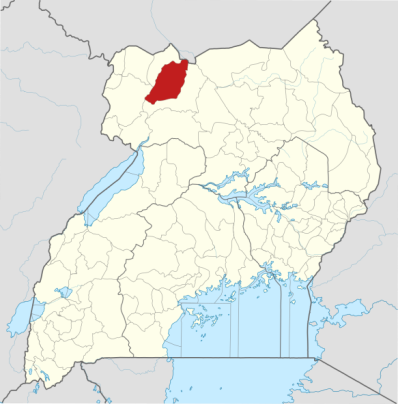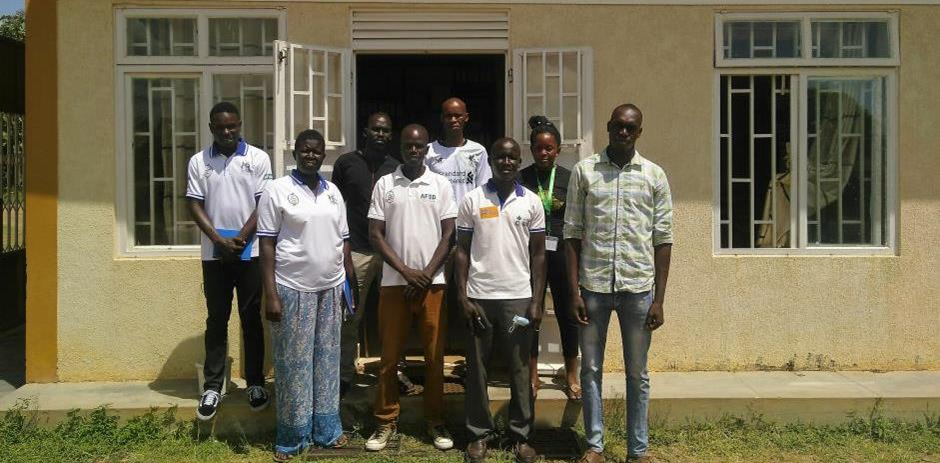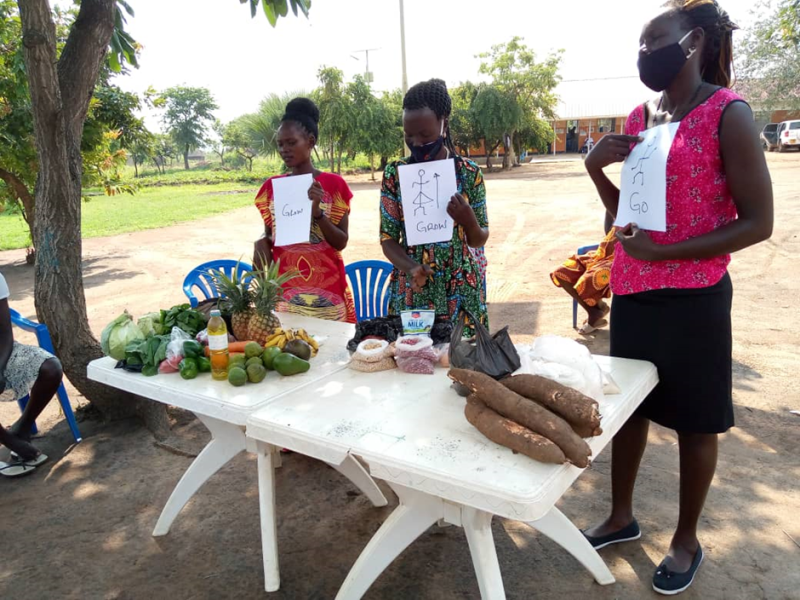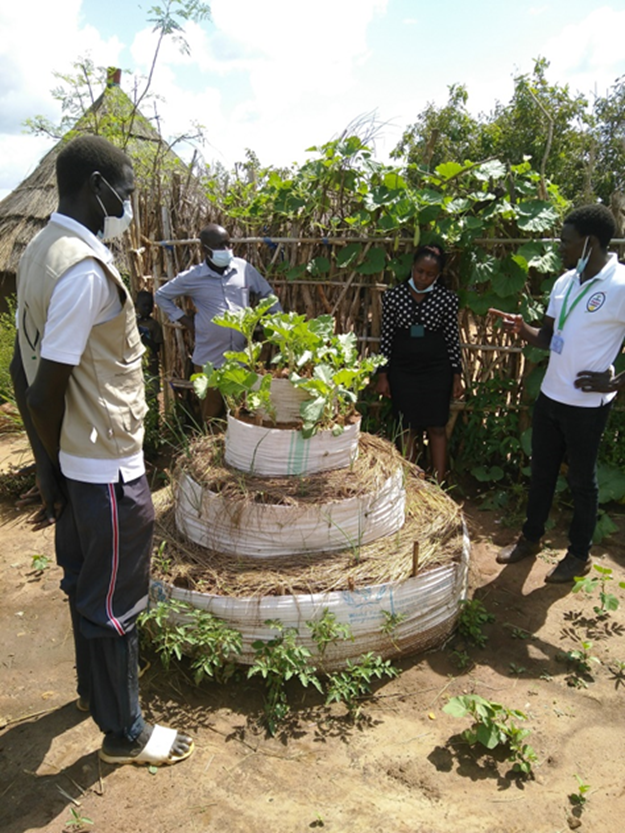Make Your Experiences Count. They Can Change the World.
LET’S BRING ALL OF OUR KNOWLEDGE AND EXPERIENCES TOGETHER.
TOGETHER WE KNOW MORE. TOGETHER WE ACHIEVE MORE. TOGETHER WE DO BETTER.
LET’S BRING ALL OF OUR KNOWLEDGE AND EXPERIENCES TOGETHER.
TOGETHER WE KNOW MORE. TOGETHER WE ACHIEVE MORE. TOGETHER WE DO BETTER.
Published: November 23, 2021
Uganda is one of the top refugee hosting countries in the world, with a total of currently almost 1.5 million displaced people living within its borders. More than half of these refugees fled from conflicts in South Sudan and are settled in the Northern Region of the country. Frontline staffers of PALM Corps that are engaged directly in work with refugee communities here share some of their key experiences.
Adjumani District is situated in the Northwest of Uganda, bordering over a short stretch of land on South Sudan. Currently roughly 230’000 people are settled in its ten designated refugee zones, making Adjumani the district that is host to the largest refugee population in all of Uganda.
Under Uganda’s Comprehensive Refugee Response Framework (CRRF), refugees are entitled to land and services and are able to move and work freely within the country. At the same time, there is strong competition for land and labour – today only around one quarter of the refugees in Adjumani have an occupation. This leads to a situation of high dependence on service provision by Uganda’s government, UN agencies, international NGOs, and local NGOs such as PALM Corps. Adjumani is also one of the poorest districts of Uganda and is still recovering from the effects of the armed conflicts in the North that lasted for nearly 20 years up to a peace agreement in 2006.


PALM Corps’ Adjumani office serves the numerous refugee settlements that are located within the district. Since the projects in the region focus on nutrition and agriculture, many of the seventeen local staff have educational backgrounds in these fields and appreciate the opportunity to pass on knowledge on how to cultivate.
PALM Corps’ Agriculture Officer Keren Oguaru says “Agriculture is my passion. I grew up cultivating. My parents were able to raise school fees from agriculture”. For Emmanuel Okello, Nutrition Assistant, this is also a key motivating factor: “Because I grew up in a situation where I’ve been helped, I also needed to grow up with the habit of helping others to achieve their goals and their vision”. In Emmanuel’s experience, the key to his work is understanding that malnutrition is a problem that comes from several related issues: “when there is poor hygiene, when there is poor sanitation, when there is food insecurity, you find malnutrition comes in.” The needs that are immediately visible to any visitor to the refugee settlements of Adjumani are just the tip of the iceberg of more complex issues that have to be addressed in an integrated manner.


For Project Coordinator Susan Kisaakye, the ability to be creative and to adapt to local needs is an important element of the success of projects in the refugee setting of Adjumani: “In the refugee settings you give services knowing that you have to provide in a comprehensive way. Because if you’re telling someone to go and eat this type of food, they don’t have the money, they don’t have the land to plant those foods.” In the work of local NGOs such as PALM Corps, a lack of resources for implementation and a need to adapt is a constant.
That is why, rather than trying to provide everything that is needed, as Nutrition Assistant Richard Amu puts it, “the most important thing is knowledge. We really need to build capacity so that communities might have the knowledge and can be self-reliant. Actually, what we are doing is building resilience so that the beneficiaries can sustain their lives in the future. So, the most important thing is capacity building.” Another challenge is the physical environment, including the fact that Adjumani is a hot and arid zone of Uganda. Setting up “staggered gardens” as illustrated in the picture, is one way of mitigating the issue of insufficient rainfall for cultivation. This type of garden is easy to put together and cheap, as the widely available bags from food distribution are used to create the walls of its different layers.
Nutrition Officer Johnson Letti Monday has been working with refugee populations for the last five years. From his experiences he takes the knowledge that projects need to be designed to account for the difficulty of adapting one’s behaviour when it is deeply engrained in local culture: “In implementation we need to give people time. Especially when we are doing social behavior change and communication projects: We can’t expect the desired change in a span of three years.” At the same time, says Abbey Thomas Anyanzo, the Executive Director of PALM Corps, it is also very important to use the many commonalities of the refugee and host population as a basis for collaborations. “Over-preaching” the differences, as he calls it, can lead to separating the refugees permanently from the population and creating jealousy in local communities that benefit less from humanitarian and development interventions.
One core lesson that PALM Corps has learned is therefore that both refugee and host populations have to be served equally by projects. They face similar issues of insufficiencies in nutrition, health and security, and focussing just on one group can increase tensions. After all, as Abbey says, the final goal has to be integration into Ugandan society and not an endless status as a refugee: “Especially given that we share so much in terms of commonality. There are cross-marriages, there are same tribes [across borders]. So, there is natural integration. And we can, in my opinion, as development actors, catalyse that”.